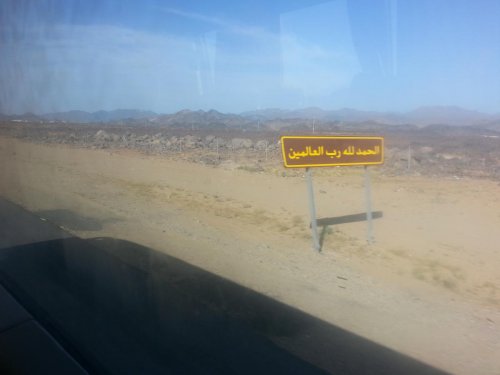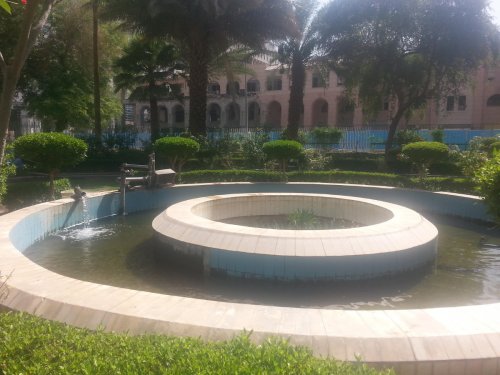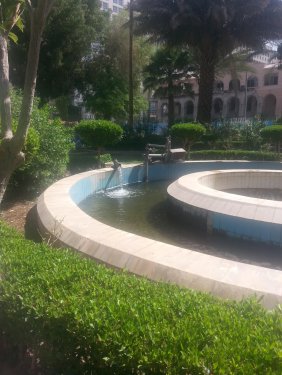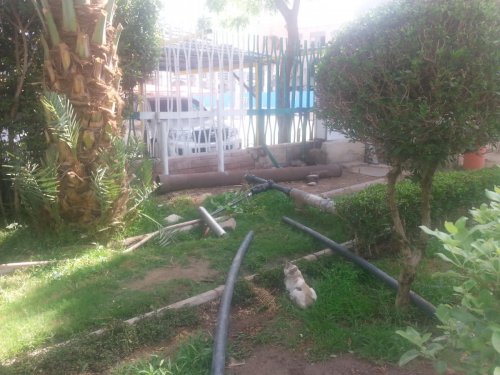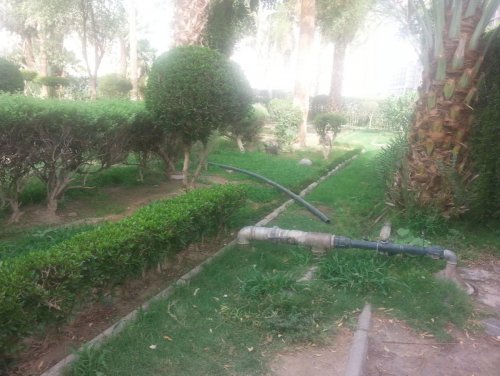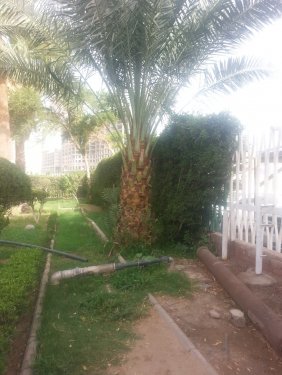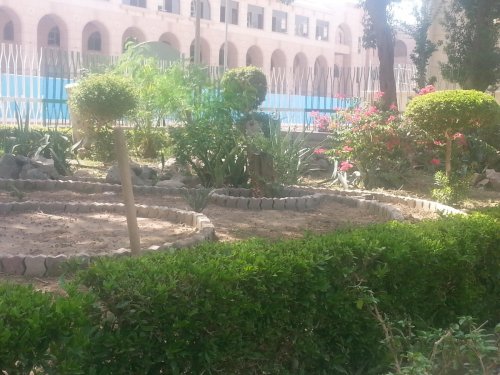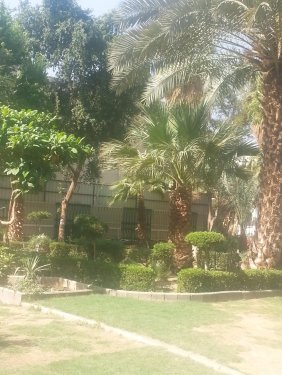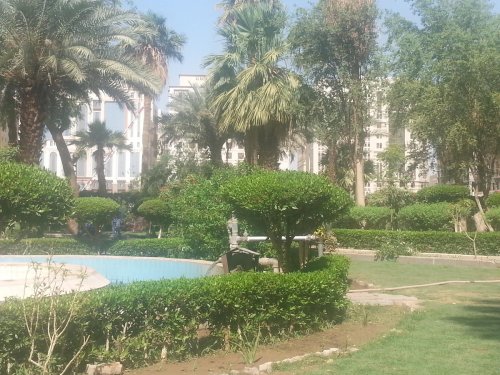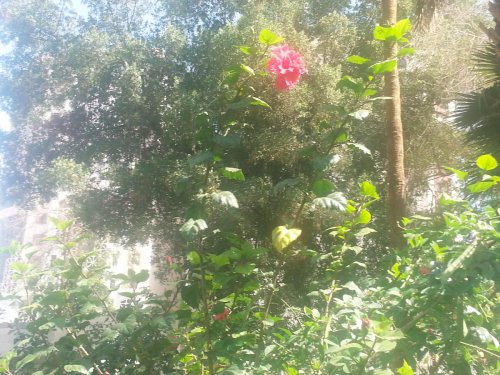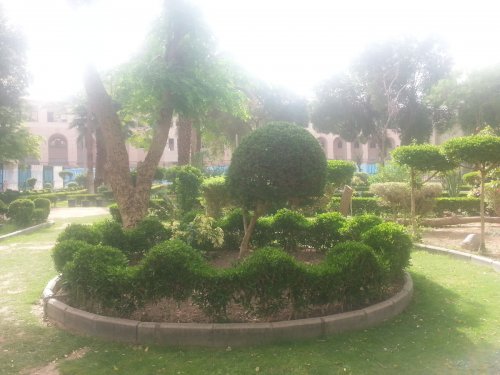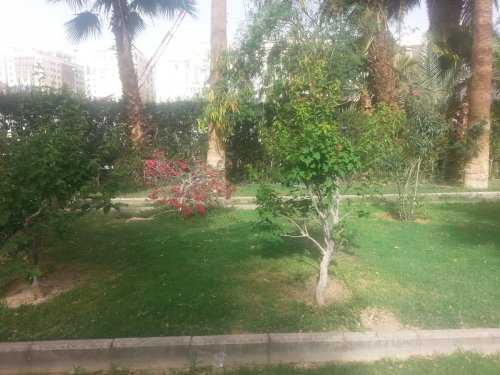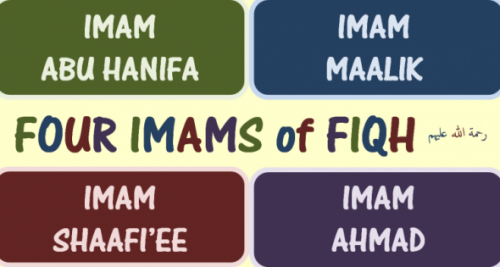-
Posts
8,462 -
Joined
-
Days Won
773
Content Type
Profiles
Forums
Events
Everything posted by ummtaalib
-
Some common health complications that can arise from fasting, and how to prevent and deal with them. The following advice has been provided following consultation with medical experts and Islamic scholars. Fasting and heartburn Fasting usually reduces the amount of stomach acid, which digests food and kills bacteria. However, thoughts of food, or the smell of it, make the brain tell the stomach to produce more acid, which can lead to heartburn. People who regularly take medicine for indigestion – such as antacids, antihistamines or proton pump inhibitors – are advised to continue taking them. A good time to do this could be with the pre-dawn meal. The control of heartburn or belching can be aided by eating in moderation and avoiding oily, deep-fried or very spicy food. Reducing your caffeine intake and stopping smoking can also help. Preparations such as peppermint oil may help reduce belching or abdominal discomfort. Sleeping with your head raised on a few pillows, in addition to long-term weight loss, may also help prevent heartburn. Fasting and poor control of diabetes People who regularly inject insulin are advised not to fast, as the potential risk to health – both in the short and long term – of not taking insulin is too great. People who have their diabetes under control using tablets should seek careful advice from their GP before starting a fast. Regular self-monitoring of your blood glucose is strongly advised. Low blood sugar levels (known as a "hypo") are dangerous, and may lead to fainting or fits if left untreated. Feeling dizzy, sweaty and disoriented may all suggest a hypo. If a person with diabetes has these symptoms, they should immediately have a sugary drink, or place sugar or a sugar-rich sweet below their tongue. Fasting and a headache This common problem has many causes. Headaches during a fast could be due to dehydration or hunger, poor rest, or the absence of addictive substances, such as caffeine or nicotine. A moderate and balanced diet, especially not missing the pre-dawn meal, taking in enough fluids and, if necessary, some painkillers such as paracetamol, can help prevent or reduce the risk of getting a headache. Headaches can also be prevented by not exposing yourself to direct sunlight, wearing a hat when out, using sunglasses to reduce the effect of glare from the sun and relieving any tense muscles with a short, gentle massage. Fasting and dehydration Dehydration is common during a fast. The body continues to lose water and salts through breathing, perspiring and urinating. If you don’t drink sufficiently before a fast, your risk of dehydration increases. This risk is higher in older people and in those taking tablets, such as diuretics. If you are unable to stand up due to dizziness, or you are disoriented, you should urgently drink regular, moderate quantities of water – ideally with sugar and salt – or Dioralyte or Lucozade. If you faint due to dehydration, your legs should be raised above your head by others, and when you awake, you should urgently rehydrate as outlined above. Fasting and constipation When you are fasting, being active, drinking water regularly and eating healthily (during the times when you are not fasting) will help to keep your bowel motions regular. Include lots of fruit and vegetables in your diet and increase the fibre content of your food using bran. If the problem persists, a short course of laxatives may help. Fasting and stress Lack of food and water, changes of routine and shorter periods of sleep can cause stress. It’s important to deal with any potential sources of stress to stop any harmful effects. This can be helped by not taking on more than you can handle, not playing sports in the hot sun, controlling your anger and not smoking. Fasting and weight control Food consumed during the pre-dawn and dusk meals may lead to some unintended weight gain. However, if you approach the fast with discipline, it can be an opportunity to lose weight and become healthier. NHS Choices
-

Sajdah Tilaawah (Prostration Of Recitation Of The Qur'an)
ummtaalib replied to ummtaalib's topic in Hanafi Fiqh (General)
Sajdah-e-Tilaawah upon Reciting the Translation of the Qur'an Q: Is it necessary to perform the Sajda-e-Tilaawah on reading the translation of the Qur'an in Urdu or English as it is necessary to perform Sajda-e-Tilaawah while reading the Qur'an in Arabic? A: Yes, it is necessary. ( وهو ) أي سجود التلاوة ( واجب ) ... ( ولو ) تلاها ( بالفارسية ) اتفاقا فهم أو لم يفهم لكونها قرآنا من وجه قال الطحطاوي: قوله ( ولو تلاها بالفارسية ) المراد بها غير العربية فتجب على السامع إذا أخبر بها قوله ( فهم أو لم يفهم ) قال في الجوهرة أما في حق السامع فإن كانت القراءة بالعربية وجب على السامع فهم أو لم يفهم إجماعا وإن كانت بالفارسية لزم السامع أيضا وإن لم يفهم عند الإمام وعندهما لا يلزم إلا إذا فهم وروي رجوعه إليهما وعليه الاعتماد اه قوله ( لكونها قرآنا من وجه ) أي نظرا للمعنى دون وجه نظرا للنظم فباعتبار المعنى توجب السجدة وباعتبار النظم لا توجبها فتجب احتياطا أفاده السيد (حاشية الطحطاوي 480) Answered by: Mufti Zakaria Makada Checked & Approved: Mufti Ebrahim Salejee (Isipingo Beach) -
RIDHÃ---PLEASURE Allah Ta’ãla says: “Allah is pleased with them and they are pleased with Him.” Rasulullah (Sallallahu Alayhi Wassallam) said: “Of the good fortune of man is his pleasure with that which Allah has ordained for him.” THE NATURE OF RIDHÃ This consists of total submission and pleasure with qadhã (fate). One should neither by word or deed object against fate. Ridhã develops to such a lofty degree that its domination permeates one’s being. In this high state of Ridhã hardship recedes and is not considered as such. The state of ridhã in which even pain is not felt is called ridhã-tab’i (natural ridhã). The stare in which ridhã prevails along with the sensation of pain is called ridhã-aqli (intellectual ridhã). The first state (ridhã-rab’i) is a physical condition, the acquisition of which is not incumbent. The second stare (ridhã-aqli) is an intellectual condition, the acquisition of which is incumbent. Ridhã with fate is commanded and exhorted so as to inculcate in one the qualities of perseverance and contentment when afflicted by adversity and hardship. When ridhã has been inculcated adversity will be taken in its stride with Contentment and without feeling any undue hardship. This is so because the intelligence alerts one to the superior results of such ridhã in the face of adversity. The result of such ridhã is future thawãb (reward). This will be better understood by means of an illustration. A physician prescribes a bitter remedy to a patient or may even insist on an operation. The patient bears in mind his future recovery and health, and willingly submits to the treatment. He is not only pleased with the physician bur feels indebted to him. Similarly he who firmly believes that Allah Ta’ãla will grant thawãb for every difficulty and sorrow experienced here, will most certainly be imbued with pleasure and happiness. The thawãb for such ridhã is of such a nature that all difficulty wanes into nothingness. It is improper to desire anything contrary to that which Allah Ta’ãla has willed and ordained for the servant. When Allah Ta’ãla considers adversity and difficulty appropriate and advantageous for us, then we as His servants have no valid reason for dissatisfaction and sorrow. Whatever state Allah Ta’ãla chooses for a servant, that is best for him. Man seeing another in a more prosperous condition than himself yearns for such prosperity and is not contented with his own lot. But, reflection will convince one that the condition chosen for one by Allah Ta’ãla is best. It should be observed that making duã is not contrary to ridhã. Ahlullaah (Saints of Allah) resort to duã merely because of the Divine Command. In this way they profess their abdiyat (state of total submission and slavery to Allah). They therefore do no insist on the attainment of what is being supplicated for. In all states and circumstances they are fully pleased with the Choice of Allah Ta’ãla whether their duã is accepted or not. Non-acceptance never induces in them dissatisfaction. This then is the sign of Ridhã. ACQUISITION OF RIDHÃ Ridhã is the effect of muhabbat (Love for Allah). There is therefore no separate means of acquiring this quality. Ridhã is a necessary corollary of muhabbat. TarbiyatusSãlikeen Editor: Shaykh Mufti Zubair Dudha Published By: Islãmic Tarbiyah Academy
- 1 reply
-
- 1
-

-
Dua upon the completion of the Qur'an Q: Generally we hear people mention that Duaas are accepted upon the completion of the Qur'an. Is this correct? If yes, then after which type of khatam will duaas be accepted? When one completes the Qur'an individually or when the khatam takes place in a madrasa jalsa? A: Duas are answered after any khatam. Whether the khatam is done individually or in taraweeh salaah or with the completion of a student’s hifz. Whichever way the completion has taken place duas are answered. عن قتادة التابعي الجليل الإمام صاحب أنس رضي الله عنه قال كان أنس بن مالك رضي الله عنه إذا ختم القرآن جمع أهله ودعا (الأذكار للنووي رقم 308) Answered by: Mufti Ebrahim Salejee (Isipingo Beach)
-
*** A Young Mans Legacy *** An 18 year old who had profound love of the Quran and was mostly seen with earphones.....listening to the Quran. His ambition was to memorise the Quran and become a Qari. Abubakr was not at all fond of anything that was worldly. Abubakr opted for non labeled shoes and clothes. He posted verses from the Quran read by himself with translations on forums. Abubakr had between 2 & 3 thousand followers on the forum. One particular woman who followed him was informed of his death. She stated that since following him, she had turned around her life for the better as a result of his posts and intended to perform umrah on his behalf. Abubakr recently was talking to his mum when she was not well. His mum asked him that should she pass away,she requested Abubakr to pray and send the blessing and thawab to her. His response... How do you know that you will go first?it could be me. Abubakr had away on jamaat since Thursday evening and had returned on Sunday before passing away on Monday. Abubakrs brother, Umar who has been trained in first aid tried CPR but failed to revive him at home. Paramedics arrived within minutes and also tried to revive him with their medical equipment. They also failed. Abubakr died with his last words.... Kalimah shahadat. The postmortem was inconclusive, meaning cause of death is unknown. No heart attack, brain hemorrhage or organ failure. There are so many other points to mention, however there are enough points stated to digest what a tragedy this was. Abubakr was not an ordinary 18 year old. How many 18 year olds have such love of the Quran, change peoples lives and have no worldly desires? How many 18 years old are capable of kalimah shahadat at time of death? Written by a student of Abukakr's father.
-
- 1
-

-
Are step grandchildren Mahrams? Q. Salaams I wanted some clarity on the validity of a mahram. My father remarried a woman after the death of my mother. He has since passed away. Can my nephews (my brother's sons) be valid mahrams to my step mother? She wishes to make umrah soon. There exists no blood ties between her and us despite her being married to my father for 30 years. Please advise. Shukran A. Your nephews (brother's sons) are considered to be Mahrams (non-strangers) to your step mother. They are her step grandsons and may travel as a Mahram for her for Umrah. And Allah Ta’ala Knows Best Mufti Ismaeel Desai Confirmation:Mufti Ebrahim Desai (Islamic rulings on this Q&A newsletter are answered in accordance to the Hanafi Fiqh) Fatwa Department Jamiatul Ulama (KZN) Council of Muslim Theologians
-
Janaazah Salaah for a person who commits suicide? Q. Is Janaazah Salaah necessary for a person who commits suicide? A. The act of committing suicide is a severe sin that is accompanied with severe punishment. Such a person will continuously be punished in the same manner that he had taken his life. Rasulullah Sallallahu Alayhi Wasallam said: “Whoever commits suicide with something, will be punished with the same thing in the Fire.” (Bukhari) However, the act of suicide does not constitute Kufr and hence, a person remains a Muslim. Therefore, it would be necessary to perform Janaazah Salaah for a person that committed suicide. Note: The amount of suicide deaths has increased to a considerable amount amongst Muslims and especially amongst the youth in recent times. Parents should constantly make observations of their children and take necessary steps in advising them accordingly. And Allah Ta’ala Knows Best Mufti Ismaeel Bassa Confirmation: Mufti Ebrahim Desai (Islamic rulings on this Q&A newsletter are answered in accordance to the Hanafi Fiqh) Fatwa Department Jamiatul Ulama (KZN) Council of Muslim Theologians
-
Difference of the Jurists Due to Varying Degrees of Knowledge of the Sunnah Translator’s Preface The following is an excerpt from our abridged translation of the masterpiece, Athar al-Hadīth al-Sharīf fī Ikhtilāf al-A’immah al-Fuqahā’, by the Syrian Hadīth scholar, the teacher of our teachers, Shaykh Muhammad ‘Awwāmah. There were numerous requests for an abridged translation of the work for the benefit of non-Arabic readers, as the original work is relatively lengthy. We will post sections of it in installments and finally publish the complete abridgement in a separate post. We have previously posted the following sections of the book: Introduction/When is a Hadīth suitable for practice? The correct meaning of the statement, “When a Hadīth is authentic it is my opinion.” Is the authenticity of a Hadīth sufficient to practice upon it? Difference of the jurists in their understanding of a Hadith Difference of approach in dealing with apparently conflicting aspects of the Sunnah The excerpt before you is an explanation of the fourth and final reason of differences among the jurist Imāms: varying degrees of knowledge of the Sunnah. In this chapter, the author commences by explaining that the idea of one scholar gathering the entire Sunnah independently is erroneous. He further explains that one cannot gauge at the knowledge of hadith a scholar possessed based on the amount of hadiths that he narrated. This is because a scholar does not necessarily impart every hadith he learnt. After discussing the vast amount of hadīths these Imāms were aware of, he acknowledges that there were times when they were also unaware of certain hadiths, albeit very few, for which he provides several examples. He concludes, by explaining the reason for delaying this cause as the last cause, although generally it is the first cause of difference that comes to mind when discussing the differences of the Imams. Further, he explains that often a scholar has proofs to substantiate his view, but others are unaware of them. Towards the beginning of this chapter, the author discusses the knowledge of Imām Abū Hanīfah in the science of Hadīth. Since this discussion is quite important and well presented, we will publish it separately in a subsequent post. It is important to remember that this is only an abridged translation. Therefore, many sections were omitted and some were summarized. To make the article more reader-friendly, an idiomatic translation was adopted in several places. Those who are interested in more detail are advised to read the original work. Muntasir Zaman The Fourth Cause of Difference: Difference Due to Varying Degrees of Knowledge of the Sunnah By Shaykh Muhammad ‘Awwamah Translated by Muntasir Zaman I will commence this section with a quotation of Imām al-Shāfi‘ī: We do not know of anyone who was able to gather the Sunnah in its entirety. When the knowledge of the majority of the scholars is collected, we can find the Sunnah. Conversely, when each scholar’s knowledge is separated, part of the Sunnah will be left out; what was left out from him will be present by someone else. In knowledge, they are in various categories: those who gather most of it, although they miss some, and those who gather less than others.[1] ‘Allāmah Ibn Taymiyyah [d. 728 AH] writes, “Whoever believes that every authentic narration has reached every Imām or a specific Imām, is gravely mistaken.”[2] Thus, it is not possible for anyone to claim for himself or someone else claim for him that he has collected the Sunnah in its entirety, based on the statement of Imām al-Shāfi‘ī alongside the concurrence of other scholars of research. Variance of the Imāms with regards to retention of the Sunnah and knowing it does not necessitate that the one who is more knowledgeable is more suitable to be followed, for example, because he might be superior in this respect whereas someone besides him deserves precedence due to his understanding and ability of deduction. As for knowledge of Hadīth, it is conditional that a person reaches the ranks of ijtihād, and is acknowledged for it, as Ibn Taymiyyah mentions: It is incorrect to say, “Whoever does not know all the Ahādīth cannot be a mujtahid, because if the prerequisite of being a mujtahid was to know every statement and action of the Prophet that relates to legal injunctions, then such a mujtahid never existed in this ummah. The peak of a scholar is to know most of them, such that he is only unaware of some details.[3] Imām Ahmad is renowned for his excellence in this field, as is Imām Mālik, al-Shāfī‘ī, and Abū Hanīfah although some people have reservations regarding Imām Abū Hanīfah. From one angle, the science of Hadīth is reception (tahammul) and audition (samā‘), and from another angle, it is transmission (riwāyah) and imparting (adā’). Firstly, a Hadīth scholar learns the narration from his teachers, which is termed as “tahammul,” after which he imparts it to people, which is termed as “adā’.” When he narrates excessively, people become aware of his narrations that serve as an expression of his abundant reception [i.e. of Hadīth]. Conversely, when he is engaged in other than the transmission of Hadīth, whatever he narrates occasionally will not depict the amount of his reception [i.e. of Hadīth], be it minimal or excessive. Abū Bakr (Allāh be pleased with him) was the first man to accept Islām, the most constant in the companionship of the Prophet, and the most knowledgeable Companion. Despite all of this, only a fraction of his narrations have reached us, which do not portray that he is from the scholars of the Companions, let alone portray that he is the most knowledgeable of them. Similar is the case of Imām Mālik whose prominence in Hadīth is as his student al-Shāfi‘ī explains, “When it comes to Hadīth, Mālik is a star.” He himself says, “I have written one hundred thousand narrations.” Likewise is the case of Imām al-Shāfi‘ī, regarding whom Imām al-Subkī writes, “Ibn Khuzaymah was asked, “Do you know any Sunnah of the Messenger of Allāh that al-Shāfi‘ī did not include in his book?” He replied, “No.”[4] [i.e. authentic Sunnah from the Ahādīth of legal injunctions, and not Ahādīth in general.] Imām Mālik and al-Shāfi‘ī can be excused [for not narrating everything they knew] on account of their preoccupation with fiqh, imparting fiqh, ijtihād, deducing rulings, and laying out the principles of fiqh and ijtihād more than the transmission of Hadīth. This does not mean that they had scarce knowledge of Hadīth; rather, they were abundant in reception and infrequent in transmission. In spite of this, we acknowledge that Abū Hanīfah did not independently encompass the entire Sunnah, neither did al-Shāfi‘, Mālik, Ahamd, al-Thawrī, al-Layth ibn Sa‘d, and al-Awzā‘ī independently encompass the entire Sunnah. It would be beneficial to mention several examples of how a small fraction of the Sunnah never reached some of the Imāms. ‘Isā ibn Abān mentions: When Abū Yusuf came to Baghdad, he held the opinion of Imām Abū Hanīfah regarding the selling of awqāf (trusts). However, when Ismā‘īl Ibn ‘Ulayyah narrated to him from Ibn ‘Awn, from Nafi‘, from Ibn ‘Umar, concerning ‘Umar giving his share of Khaybar away in charity, he (Abū Yūsuf) remarked, “This cannot be opposed. If it had reached Abū Hanīfah, he would have expressed his opinion accordingly and would not oppose it.”[5] Imām Ahmad mentions, “Al-Shāfi‘ī told us, “You are more knowledgeable than me regarding Hadīth and its transmitters. When there exists a Hadīth, inform me, be it from Basrah, Kufah or Shām, so that I may practice upon it, if it is authentic.”[6] In al-‘Ilal al-Mutanāhiyah, Ibn al-Jawzī narrated the Hadith, “Perform Salāh behind every righteous and corrupt person” from six Companions via thirteen routes, classifying each route as weak. He then concludes with the statement of Imām Ahmad, “I have not heard of these.”[7] These are a few examples of how some Imāms were unaware of a Hadīth or more, and those who came afterwards corrected them either in their lifetime or after their death, which is not a shortcoming on their part keeping in mind the scarcity of such instances. Thus, no one person is capable of encompassing the prophetic Sunnah. Perfection is solely for Allāh. Addendum Perhaps, some are wondering as to why I mentioned this cause as the last cause. I have done so deliberately, knowing well that many people repeatedly mention this cause verbally and in their works, and place it as the first cause. When they come across a Hadīth that an Imām did not practice upon, they immediately assert, “He was unaware of it, and had he known about it, he would practice upon it. No one individual is capable of encompassing the Sunnah independently.” I never cease to be amazed by these people for two reasons: Firstly, they do not exhaustively search the works of the Imām such that they may have the slightest proof that the Imām did not come across it, because of which he held a view contrary to it. I have heard of a scholar who used to say, “Abū Hanīfah did not come across the Hadīth, ‘There is no Salāh without the Opening of the Book [sūrat al-Fātihah].” This is in spite of him [i.e. Imām Abū Hanīfah] narrating this Hadīth in his well-known Musnad, which was printed multiple times, commonly available, and commentated on! If someone claims that he completely exhausted all the works of the Imām, yet he did not come across this specific Hadīth, he is still not permitted to claim that the Imām was unaware of it. This is similar to when you are searching for a Hadīth in the Sahīhs of al-Bukhārī and Muslim, but do not find it there, you cannot claim, “This is an authentic narration that the two illustrious Imāms, al-Bukhārī and Muslim, were unaware of.” If that was the case, how vast is your knowledge? What a great Imām you are yourself! Secondly, the person who claims that the Imām was unaware of this Hadīth is merely surmising, and is falsely accusing an Imām from the Imāms of the Muslims without any evidence or proof. Did the Imām himself inform him, “I did not come across this Hadīth”? In light of the above, to postpone this cause was natural, demanded by academia and the etiquette of Islām in relation to its scholars. It is better for an intelligent Muslim to accuse himself instead of being bold against the Imāms by accusing them of being unaware of what people such as himself came across. How stunning is the incident of Imām Ahmad recorded by al-Bayhaqī in Manāqib al-Shāfi‘ī: Humayd ibn Ahmad al-Basrī mentions: I was in the company of Ahmad ibn Hanbal and we were discussing a particular ruling. A person told Imām Ahmad, “O Abū Abd Allāh, there is no authentic narration in this issue! He (i.e. Imām Ahmad) said, “If there is no authentic narration in this issue, there is still the opinion of Imām al-Shāfi‘ī regarding it, and his evidence is most reliable in this.” [8] Thereafter, Imām Ahmad told the person of an incident that took place between him and al-Shāfi‘ī, which shows that whenever al-Shāfi‘ī held an opinion, it is necessary for it to be substantiated by an evidence from the Sunnah. However, sometimes this evidence is unknown. Unknown to who? Unknown to the likes of Imām Ahmad ibn Hanbal! Imām Ahmad mentions: I asked al-Shāfi‘ī, “What is your opinion concerning so and so issue?” He then gave me an answer, so I asked, “Where have you taken this from? Is there a narration or verse on the issue?” Thereupon, he presented an explicit narration of the Messenger of Allāh (Allāh be pleased with him).”(i.e. explicit in its content such that the words do not contain another meaning.) [9] Imām Ahmad knew the Hadīth. In spite of this, he was unaware of the manner of deducing the ruling from it. However, he was patient and composed, which is a lofty character that every Muslim to a greater extant should inculcate. Consider another incident of Imām Ahmad, wherein his good conduct with other Imāms manifests. Imām Ahmad mentions, “It reached me that he (Ishāq ibn Ismā‘īl al-Tālqānī) negatively mentioned ‘Abd al-Rahmān ibn Mahdī. How strange is this! Thereafter, he said in a state of anger, “What is your problem-may you be destroyed- that you speak ill of the Imāms?”[10] Imām Taqī al-Subkī mentions: People are of two categories: a mujtahid scholar who is capable of deducing rulings from the Qur’ān and Sunnah, or a layman who follows a scholar. The duty of the mujtahid when an occurrence takes place is to deduce the legal ruling from shar‘ī evidences. The duty of the layman is to refer to the statements of the scholars. It is not permissible for a non-mujtahid when he hears a verse of the Qur’ān or a narration that he leaves the statements of the scholars. This is because when he sees them going against it despite having knowledge of it, it is evident that they only went against it because of a proof. Allāh has mentioned, “Ask the people of the Remembrance, if you do not know.” The intent is that when non-mujtahids, in particular the general masses, hear a verse that contains generality or non-restrictiveness, it is impermissible for them to practice upon that generality or non-restrictiveness except with the statement of the scholars. Only that person can practice upon generalities and non-restrictiveness who recognizes the abrogating and abrogated; general and specific; non-restricted and restricted; ambiguous and express; literal and metaphoric (texts). Thereafter, he mentioned several examples from the Qur’ān and Sunnah in roughly two pages, after which he said: This makes it clear that that merely practicing without analyzing the proofs of specification and restriction is an error…when he acknowledges that it is incorrect to practice upon the generality until ascertains whether there exist a specifying text for it, and he understands conflicting evidences, he will submit the matter to those suitable. He will also know that above every possessor of knowledge is he who is more knowledgeable. Likewise, it is inappropriate to adduce evidence from the Qur’ān until he knows from the Sunnah that which will clarify it, specify it, or restrict it. Allāh mention, “We have revealed to you the Remembrance so that you may explain to the people what has been revealed to them and perhaps they may ponder.” Thereafter, he said, “Whoever fails to recognize the Qur’ān, Sunnah, and the opinions of the scholars, is not permitted to practice upon an evidence that hears without an Imām who will guide him.”[11] The statements of the scholars in this regard are numerous. You will find the discussion of “whoever is not a mujtahid is a muqallid layman” towards the ending of the books of al-Usūl (principles of fiqh), and spread out in their statements in their other works. ———————————————————————————– [1] Al-Shāfi‘ī, al-Risālah, 42-43 [2] Ibn Taymiyyah, Raf‘ al-Malām, 17 [3] Ibid., 19 [4] Al-Subkī, Ma‘nā Qaswl al-Imām al-Muttalibī, 77,106 [5] Al-Kawthari, al-Nukat al-Tarīfah, 40 [6] Al-Bayhaqī, Manāqib al-Shāfi‘ī, 528:1 [7] Ibn al-Jawzī, al-‘Ilal al-Mutanāhiyah, 418:1 [8] Al-Bayhaqī, Manāqib al-Shāfi‘ī, 154:1 [9] Ibid. [10] Ibn Hajar, Tahdhīb al-Tahdhīb, 226:1 [11] Al-Subkī, al-Durrah al-Mudiyyah, 20
-
Does Salaah in a Musalla equal Salaah in the Masjid Q. Does the performance of Salaah in a Musallah hold the same reward as performing Salaah in a Musjid? A. The reward for performing Salaah in a Musjid is much more rewarding than Salaah performed in a Musallah. Therefore, an endeavour should be made by all to perform Salaah in a Musjid as it is more beneficial and rewarding for a person. Note: It has come to our notice that many Muslims have established Musallahs in flats and apartments for convenience purposes to offer Salaah whereas it is possible for them to perform Salaah at a Musjid in the area. In such cases, Muslims should be motivated to perform Salaah in the Musjid and not at the Musallah. And Allah Ta’ala Knows Best Mufti Ismaeel Bassa Confirmation: Mufti Ebrahim Desai (Islamic rulings on this Q&A newsletter are answered in accordance to the Hanafi Fiqh) Fatwa Department Jamiatul Ulama (KZN)
-
-
Water said to be from the Well of Budha'ah being pumped into a pond in the Saqeefah Banu Sa'eedah (Click on pictures to enlarge)
-
بئر بُضاعَة Well of Budha'ah Located to the north of Saqeefah Banu Sa'eedah (Garden of Banu Sa'eedah) Posted HERE... The pictures below (In the Saqeefah Banu Sa'eedah) is said to be where this well used to be (Click on picture to enlarge) ........however in other places it says the well used to be a bit further away where the hotels are now situated Allah ta'ala knows best!
-
Saqifah Bani Sa'edah A Beautiful Garden. A Cool, Shaded Sanctuary....Posted HERE New Pictures!!! (Click on pictures to enlarge)
-
Carrying out the Command of Allah Despite not feeling motivated Hazrat Moulana Ashraf Ali Thanwi (rahmatullahi ‘alaih) once mentioned:It is compulsory upon one to fulfil the commandments of Shariah, regardless of whether one feels motivated or not. It is really unfortunate that one only fulfils the commands of Shariah when one feels motivated. Is one the servant of one’s feelings or the servant of Allah? (Being the servant of Allah demands that one fulfils the command of the Creator regardless of whether one feels motivated or not. This is the sign of one being the true servant of Allah and not the servant of one’s feelings.) (Malfoozaat Hakeemul Ummat 7/239) Ihyaauddeen.co.za
-
Virtues of visiting the Raudha Mubaarak: Presenting oneself in the court of Rasulullah sallallahu alaihi wasallam is one the greatest acts of worship, for which great rewards and virtues have been promised in the Ahaadeeth. Hereunder are a few virtues: “My intercession becomes necessary for the one who visits my grave.”(Daaraqutni/Bayhaqi) “Visiting me after my death is akin to visiting me during my lifetime.”(Daaraqutni) “The one who visits me with this being his sole intention will be in my company on the day of Qiyaamah.”(`Uqayli) (A detailed discussion on the authenticity of these narrations can be seen in the book Shifaaus Siqaam li Ziyaarati Khairil Anaam of the Hadeeth Master Taqiyyud Deen As-Subki (r.a.) and other detailed works on this subject.) One of the greatest virtues is that when a person presents himself before Rasulullah sallallahu alaihi wasallam and offers his salaam, Rasulullah sallallahu alaihi wasallam personally listens and replies to his salaam. (See Shifaaus Siqaam and Alqoulul Badee` of Shamsud Deen As-Sakhaawi r.a.) Together with the virtues, visiting the Raudha Mubaarak has always been the practice of the Ummah since the time of the Sahaabah y. Mulla `Ali Qari (r.a.) – the great Qari, Mufassir, Muhaddith and Faqeeh – writes: “Visiting Rasulullah sallallahu alaihi wasallam is one of the greatest acts of worship, most virtuous of deeds, most promising means of attaining high ranks and is close to the position of the compulsory acts according to the consensus of the Muslims, regardless of those who oppose this view.” (Manaasik Mulla Ali Qari, pg. 502) By this last statement Mulla `Ali Qari (r.a.) refers to some people who do not ascribe to any Mazhab. Under the pretext of directly following the Quraan and Hadeeth they contradict the entire Ummah and erroneously opine that it is impermissible to travel to Madinah Munawwarah with the intention of visiting Rasulullah sallallahu alaihi wasallam. However, this view is against the practice of the Sahaabah and Taabi`een and is the direct result of abandoning the following of the illustrious Imaams of Fiqh. Qaadhi `Iyaadh (r.a.) says: “Visiting the Qabr of Rasulullah sallallahu alaihi wasallam is an accepted and unanimously agreed practice amongst the Muslims and an encouraged virtuous deed.” (Shifaaus Siqaam pg. 53)
-
Homosexuality Q: Is it allowed in Islam for a girl to fall in love with another girl or a boy to fall in love with another boy? A: It is really unimaginable and inconceivable to imagine a woman in love with a woman or a man in love with a man. Any normal person who is sound in his mind will never ever think of asking whether lesbianism and homosexuality has any place in Islam. These are such disgusting and detestable sins that one feels ashamed to expose before people. Even if the president of any country has a gay partner, he will never wish to publicly announce the filthy relationship he has with his gay partner or inform the people of his so called marriage to him. Rather, he would conceal this embarrassment and disgrace knowing that these filthy and disgusting acts goes against the very fiber of humanity. This abnormal behaviour is generally created through one coming into contact with these types of dirty literature, associating with these types of filthy people or viewing these types of disgusting scenes. The Qur'an has outlined the position of people who commit these major crimes. Allah Ta'ala destroyed the entire nation of Hazrat Loot (Alaihis Salaam) due to them being involved in the sin of homosexuality. For further details refer tohttp://muftionline.co.za/node/6560 And Allah Ta'ala (الله تعالى) knows best. وَذَروا ظـٰهِرَ الإِثمِ وَباطِنَهُ إِنَّ الَّذينَ يَكسِبونَ الإِثمَ سَيُجزَونَ بِما كانوا يَقتَرِفونَ﴿الأنعام:١٢٠﴾ أَتَأتونَ الذُّكرانَ مِنَ العـٰلَمينَ ﴿١٦٥﴾ وَتَذَرونَ ما خَلَقَ لَكُم رَبُّكُم مِن أَزوٰجِكُم بَل أَنتُم قَومٌ عادونَ ﴿١٦٦﴾ قالوا لَئِن لَم تَنتَهِ يـٰلوطُ لَتَكونَنَّ مِنَ المُخرَجينَ ﴿١٦٧﴾ قالَ إِنّى لِعَمَلِكُم مِنَ القالينَ ﴿١٦٨﴾ رَبِّ نَجِّنى وَأَهلى مِمّا يَعمَلونَ ﴿١٦٩﴾ فَنَجَّينـٰهُ وَأَهلَهُ أَجمَعينَ ﴿١٧٠﴾ إِلّا عَجوزًا فِى الغـٰبِرينَ ﴿١٧١﴾ ثُمَّ دَمَّرنَا الـٔاخَرينَ ﴿١٧٢﴾ وَأَمطَرنا عَلَيهِم مَطَرًا فَساءَ مَطَرُ المُنذَرينَ ﴿١٧٣﴾ إِنَّ فى ذٰلِكَ لَـٔايَةً وَما كانَ أَكثَرُهُم مُؤمِنينَ ﴿١٧٤﴾ وَإِنَّ رَبَّكَ لَهُوَ العَزيزُ الرَّحيمُ ﴿الشعراء:١٧٥﴾ ( ولا يجوز للرجل مضاجعة الرجل وإن كان كل واحد منهما في جانب من الفراش ) قال عليه الصلاة والسلام لا يفضي الرجل إلى الرجل في ثوب واحد ولا تفضي المرأة إلى المرأة في الثوب الواحد وإذا بلغ الصبي أو الصبية عشر سنين يجب التفريق بينهما بين أخيه وأخته وأمه وأبيه في المضجع لقوله عليه الصلاة والسلام وفرقوا بينهم في المضاجع وهم أبناء عشر وفي النتف إذا بلغوا ستا كذا في المجتبى قال الشامي : قوله ( مضاجعة الرجل ) أي في ثوب واحد لا حاجز بينهما وهو المفهوم من الحديث الآتي وبه فسر الإتقاني المكامعة على خلاف ما مر عن الهداية وهل المراد أن يلتفا في ثوب واحد أو يكون أحدهما في ثوب دون الآخر والظاهر الأول يؤيده ما نقله عن مجمع البحار أي متجردين وإن كان بينهما حائل فيكره تنزيها اه تأمل قوله ( بين أخيه وأخته وأمه وأبيه ) في بعض النسخ وبين بالواو وهكذا رأيته في المجتبى قال في الشرعة ويفرق بين الصبيان في المضاجع إذا بلغوا عشر سنين ويحول ين ذكور الصبيان والنسوان وبين الصبيان والرجال فإن ذلك داعية إلى الفتنة ولو بعد حين اه وفي البزازية إذا بلغ الصبي عشرا لا ينام مع أمه وأخته وامرأة إلا بامرأته أو جاريته اه فالمراد التفريق بينهما عند النوم خوفا من الوقوع في المحذور فإن الولد إذا بلغ عشرا عقل الجماع ولا ديانة له ترده فربما وقع على أخته أو أمه فإن النوم وقت راحة مهيج للشهوة وترتفع فيه الثياب عن العورة من الفريقين فيؤدي إلى المحظور وإلى المضاجعة المحرمة خصوصا في أبناء هذا الزمان فإنهم يعرفون الفسق أكثر من الكبار وأما قوله وأمه وأبيه فالظاهر أن المراد تفريقه عن أمه وأبيه بأن لا يتركاه ينام معهما في فراشهما لأنه ربما يطلع على ما يقع بينهما بخلاف ما إذا كان نائما وحده أو مع أبيه وحده أو البنت مع أمها وحدها وكذا لا يترك الصبي ينام مع رجل أو امرأة أجنبيين خوفا من الفتنة ولا سيما إذا كان صبيحا فإنه وإن لم يحصل في تلك النومة شيء فيتعلق به قلب الرجل أو المرأة فتحصل الفتنة بعد حين فلله در هذا الشرع الطاهر فقد حسم مادة الفساد ومن لم يحط في الأمور يقع في المحذور وفي المثل لا تسلم الجرة في كل مرة (رد المحتار 6/ 382) Answered by: Mufti Zakaria Makada Checked & Approved: Mufti Ebrahim Salejee (Isipingo Beach)
-
What is a Madhhab? Why is it necessary to follow one? The word madhhab is derived from an Arabic word meaning “to go” or “to take as a way”, and refers to a mujtahid‘s choice in regard to a number of interpretive possibilities in deriving the rule of Allah from the primary texts of the Qur’an and hadith on a particular question. In a larger sense, a madhhab represents the entire school of thought of a particular mujtahid Imam, such as Abu Hanifa, Malik, Shafi’i, or Ahmad–together with many first-rank scholars that came after each of these in their respective schools, who checked their evidences and refined and upgraded their work. The mujtahid Imams were thus explainers, who operationalized the Qur’an and sunna in the specific shari’a rulings in our lives that are collectively known as fiqh or “jurisprudence”. In relation to our din or “religion”, this fiqh is only part of it, for the religious knowledge each of us possesses is of three types. The first type is the general knowledge of tenets of Islamic belief in the oneness of Allah, in His angels, Books, messengers, the prophethood of Muhammad (Allah bless him and give him peace), and so on. All of us may derive this knowledge directly from the Qur’an and hadith, as is also the case with a second type of knowledge, that of general Islamic ethical principles to do good, avoid evil, cooperate with others in good works, and so forth. Every Muslim can take these general principles, which form the largest and most important part of his religion, from the Qur’an and hadith. The third type of knowledge is that of the specific understanding of particular divine commands and prohibitions that make up the shari’a. Here, because of both the nature and the sheer number of the Qur’an and hadith texts involved, people differ in the scholarly capacity to understand and deduce rulings from them. But all of us have been commanded to live them in our lives, in obedience to Allah, and so Muslims are of two types, those who can do this by themselves, and they are the mujtahid Imams; and those who must do so by means of another, that is, by following a mujtahid Imam, in accordance with Allah’s word in Surat al-Nahl, “ Ask those who recall, if you know not ” (Qur’an 16:43), and in Surat al-Nisa, “ If they had referred it to the Messenger and to those of authority among them, then those of them whose task it is to find it out would have known the matter ” (Qur’an 4:83), in which the phrase those of them whose task it is to find it out, expresses the words “alladhina yastanbitunahu minhum“, referring to those possessing the capacity to draw inferences directly from the evidence, which is called in Arabic istinbat. These and other verses and hadiths oblige the believer who is not at the level of istinbat or directly deriving rulings from the Qur’an and hadith to ask and follow someone in such rulings who is at this level. It is not difficult to see why Allah has obliged us to ask experts, for if each of us were personally responsible for evaluating all the primary texts relating to each question, a lifetime of study would hardly be enough for it, and one would either have to give up earning a living or give up ones din, which is why Allah says in surat al-Tawba, in the context of jihad: “ Not all of the believers should go to fight. Of every section of them, why does not one part alone go forth, that the rest may gain knowledge of the religion and admonish their people when they return, that perhaps they may take warning ” (Qur’an 9:122). The slogans we hear today about “following the Qur’an and sunna instead of following the madhhabs” are wide of the mark, for everyone agrees that we must follow the Qur’an and the sunna of the Prophet (Allah bless him and give him peace). The point is that the Prophet (Allah bless him and give him peace) is no longer alive to personally teach us, and everything we have from him, whether the hadith or the Qur’an, has been conveyed to us through Islamic scholars. So it is not a question of whether or not to take our din from scholars, but rather, from which scholars. And this is the reason we have madhhabs in Islam: because the excellence and superiority of the scholarship of the mujtahid Imams–together with the traditional scholars who followed in each of their schools and evaluated and upgraded their work after them–have met the test of scholarly investigation and won the confidence of thinking and practicing Muslims for all the centuries of Islamic greatness. The reason why madhhabs exist, the benefit of them, past, present, and future, is that they furnish thousands of sound, knowledge-based answers to Muslims questions on how to obey Allah. Muslims have realized that to follow a madhhab means to follow a super scholar who not only had a comprehensive knowledge of the Qur’an and hadith texts relating to each issue he gave judgements on, but also lived in an age a millennium closer to the Prophet (Allah bless him and give him peace) and his Companions, when taqwa or “godfearingness” was the norm–both of which conditions are in striking contrast to the scholarship available today. While the call for a return to the Qur’an and sunna is an attractive slogan, in reality it is a great leap backward, a call to abandon centuries of detailed, case-by-case Islamic scholarship in finding and spelling out the commands of the Qur’an and sunna, a highly sophisticated, interdisciplinary effort by mujtahids, hadith specialists, Qur’anic exegetes, lexicographers, and other masters of the Islamic legal sciences. To abandon the fruits of this research, the Islamic shari’a, for the following of contemporary sheikhs who, despite the claims, are not at the level of their predecessors, is a replacement of something tried and proven for something at best tentative. The rhetoric of following the shari’a without following a particular madhhab is like a person going down to a car dealer to buy a car, but insisting it not be any known make–neither a Volkswagen nor Rolls-Royce nor Chevrolet–but rather “a car, pure and simple”. Such a person does not really know what he wants; the cars on the lot do not come like that, but only in kinds. The salesman may be forgiven a slight smile, and can only point out that sophisticated products come from sophisticated means of production, from factories with a division of labor among those who test, produce, and assemble the many parts of the finished product. It is the nature of such collective human efforts to produce something far better than any of us alone could produce from scratch, even if given a forge and tools, and fifty years, or even a thousand. And so it is with the shari’a, which is more complex than any car because it deals with the universe of human actions and a wide interpretative range of sacred texts. This is why discarding the monumental scholarship of the madhhabs in operationalizing the Qur’an and sunna in order to adopt the understanding of a contemporary sheikh is not just a mistaken opinion. It is scrapping a Mercedes for a go-cart. Written by: Shaykh Nuh Keller Amman, Jordan Source
-
Zakaat to ones in-laws Q. Is it permissible to give Zakaat to ones father-in-law, mother-in-law, son-in-laws, daughter-in-laws? Can one give Zakaat to ones brothers, sisters, uncles and aunts? A. It is permissible to give Zakaat to ones In-laws i.e. father-in-law, mother-in-law, son-in-law’s, daughter-in-law’s and so on. It is also permissible to give Zakaat to ones brothers, sisters, uncles and aunts. In fact, ones close family relatives should be given preference over others in discharging Zakaat. This is on condition that the above people are eligible recipients of Zakaat. And Allah Ta’ala Knows Best Mufti Ismaeel Bassa Confirmation: Mufti Ebrahim Desai (Islamic rulings on this Q&A newsletter are answered in accordance to the Hanafi Fiqh) Fatwa Department Jamiatul Ulama (KZN)
-
Hollywood and Bollywood-styled wedding parties A disturbing trend surfacing in the Muslim community is Hollywood and Bollywood-styled wedding parties of song and dance. The party attendees as well as the couple to be, dance and party with each other, at times, with hired musicians and dancers. Such parties are yet another manifestation of the love some Muslims have for the customs of the Kuffaar and their dislike and aversion for the Sunnah of Rasulullah Sallallahu Alayhi wa Sallam. Rasulullah Sallallahu Alayhi wa Sallam was most severe in his condemnation of parties of music and dance: “Most certainly, people from my Ummah will consume liquor which they will call by some other name. Over their heads (on stages) will be musical instruments and singing girls. Allah will cause the earth to swallow them, and from among them He will transform into apes and swines.” (Ibn Maajah) In Muslim weddings today, Muslims are serving wine to their non-Muslim guests and serving their Muslim guests bottles of grape juice that in all respects appear to be bottles of wine. How long will it be before that grape juice bottled like wine is replaced with the real thing? Parties of song and dance are venues which draw the anger of Allah and His punishment. It is Haraam to host such parties and it is Haraam to attend them. We often ask the reason for Muslim suffering in the world. We need merely consider the lifestyle of Muslims today to find the answer. Masjid Poster downloadable here. Jamiatul Ulama (KZN) Council of Muslim Theologians
-
Signboards Hazrat Maulana Yunus Patel Saheb (rahmatullah alayh) Our Muslim names, Islamic dress and our prayers are like the signboard found outside a shop, which informs us that inside this shop, sweets, chocolates, biscuits and cakes are stocked and sold. The person reading the signboard thus expects to find what has been advertised outside, inside the shop. What would the reaction of the person be, if he or she finds dung, manure and excrement inside, instead of sweets and chocolates? In a similar vein, our beautiful Muslim names and Islamic garb informs others that inside our hearts there is a certain ‘merchandise’ in the form of firm Imaan in Allah Ta’ala and love for His Beloved Rasool (Sallallahu Alayhi wa Sallam). A person expects to find, the attributes of trustworthiness, honesty, sincerity, forgiveness, charity, Taqwa (piety), Zuhd (asceticism), Sabr (patience) and Shukr (gratitude). These are the qualities and traits a person expects to find in his social dealings with us. The beard, kurta, turban, tasbeeh, or the cloak, purdah, etc. are all additional signs which lay more and more emphasis on the person’s virtue and goodness. What would a person’s reaction be, when instead of these virtues, he or she finds arrogance, malice, dishonesty and greed? Jamiatul Ulama (KZN) Council of Muslim Theologians
-
- 1
-

-

Laws of ‘Iddah (the post marital waiting period)
ummtaalib replied to ummtaalib's topic in Hanafi Fiqh (Women)
Maintenance for a Widow Q. After a woman is divorced, the ex-husband is responsible for the ex-wife’s maintenance during the Iddah period. Is it the same case when a women’s husband passes away. Will the deceased’s husband wife be entitled to receive maintenance from the estate of her deceased husband during the Iddah period? (Question published as received) A. During the Iddah period of divorce, it is the ex-husbands responsibility to maintain the ex-wife until her Iddah period terminates. However, in the case of the Iddah period of death, the wife is not entitled to maintenance from her deceased husband or his estate. She is entitled to her share of inheritance from her deceased husband’s estate. (Al Lubaab Fi Sharhil Kitaab 1/290) As there is usually a delay in winding up the estate, the executor of the estate should ensure that funds required for the maintenance of the widow be made available to her from her share of the estate, if so required. Note: The Iddah period of divorce is three menstrual for a menstruating woman or three months for a non-menstruating woman. The Iddah period of death is four months and ten days. And Allah Ta’ala Knows Best Mufti Ismaeel Bassa Confirmation: Mufti Ebrahim Desai (Islamic rulings on this Q&A newsletter are answered in accordance to the Hanafi Fiqh) Fatwa Department Jamiatul Ulama (KZN) -
Pearls of Wisdom: No.38 “Food for the Soul” Subject: TRIALS AND TRIBULATIONS Allah, The Most Exalted, says: " It is He who created death and life to test you as to which of you are best in deed, and He is the Almighty, the Forgiving.” (Quran : Surat Al-Mulk 67:2) The Noble Messenger of Allah, Muhammad (peace be upon him) is reported to have said: “Wondrous is the affair of the believer for there is good for him in every matter and this is not the case with anyone except the believer. If he is happy, then he thanks Allah and thus there is good for him, and if he is harmed, then he shows patience and thus there is good for him.” (Hadith-Sahih Muslim 2999) Note: Trials can be a sign that Allah intends good for us, because through trials our sins are expiated and we have the opportunity to perform good deeds as well as reflect on our past. Remember if Allah Ta’ala has taken us TO it…He will most definitely take us THROUGH it! Remember that for every lock Allah Ta’ala has created a key… For a motivational article on TRIALS & TRIBULATIONS please visit : http://eislaminfo.blogspot.co.za/2016/04/the-smoke-signal.html
-
"No dogs allowed except on leash" Hazrat Moulana Yunus Patel Saheb (rahmatullah alayh) Whilst taking a walk through a park one morning, accompanied by some friends, we passed by a sign which is generally found in many parks. It read : “NO DOGS ALLOWED EXCEPT ON LEASH”. Considering a deeper meaning to the sign, I mentioned to my companions: Our nafs (ego) is akin to a dog. The nature of an undisciplined, unleashed dog is that it barks, relieves itself anywhere, devastates and lays waste the delicate flower beds as it tramples them, attacks or spoils people’s picnics, and runs after that which it should not. Without its leash and without training, it can scare, harm and bite others, as well as cause damage. Therefore the Parks Board insists that dogs be on leash. A dog, well trained, will obediently remain on leash, under the control of its master and will not cause inconvenience or damage. It will walk along its master and do as he commands. The temperament of the nafs (carnal self/ego) is like that of the dog. It also needs to be disciplined and trained, and it also requires a leash. This leash is the leash of Shariah, the love and fear of Allah Ta’ala, and fear of accountability on the Day of Judgment, tied tightly and securely around its neck. Without this leash, the person will break the commands of Allah Ta’ala and violate the rights of creation. The person will steal, gamble, fornicate, suppress, oppress, abuse his wife, children or parents, and perpetrate various other crimes. Malice, greed, jealousy, pride and other filthy, vile qualities will also be found in the person’s heart. People will distance themselves from such a person for fear of being harmed or troubled. The person who has disciplined his nafs and controls it with the leash of Shariah, will find that it becomes submissive and compliant to the instructions of its Master. The person then finds it easy to fulfil the rights of Allah Ta’ala as well as creation, since the nafs is compliant to its Master’s commands. The person will want to do good deeds, assist people, invite others to Deen. …He will not cause harm to people; rather he will benefit them. People will then love such a person. When there is a need to go to the shops, factories, airports, hospitals, etc., the person will first leash the nafs with the Khauf (fear) and love of Allah Ta’ala and then go about the fulfilment of duties. Nabi (Sallallahu Alayhi wa Sallam) has said : “The intelligent one is he who suppresses his desires and practises for what is after death, and the foolish one is he who makes his nafs follow its desires and (he) places (baseless) hope on Allah.” (Tirmizi) Jamiatul Ulama (KZN) Council of Muslim Theologians
-
- 1
-

-
The Gift of Mi’raaj Mi'raaj was one of the most remarkable events in the life of Rasulullah Sallallahu Alayhi Wa Sallam. Miraculously he was taken from Makkah Mukarramah to Baitul-Maqdis and from there he Sallallahu Alayhi Wa Sallam ascended into the Heavens and further into the Divine Presence of Allah Ta’ala. This was a unique honour for Rasulullah Sallallahu Alayhi Wa Sallam. We must be aware that there are various dates given by the historians for when Miraaj took place and none of these dates including the 27th of Rajab is conclusive. However, one thing is for certain. On this night Rasulullah Sallallahu Alayhi Wa Sallam was bestowed with a gift like no other. A gift so precious that Allah Ta’ala did not send it to the earth, rather He gave it directly to Rasulullah Sallallahu Alayhi Wa Sallam in the heavens. That gift is the gift of Salaah. In a Hadith Qudsi, Allah Ta’ala states, “Verily, I have made five Salaah compulsory on your Ummah and I have taken a pledge that whoever will steadfastly perform his Salaah at its appointed time, I will enter him into Paradise.”(Ibn Majah) May Allah Ta’ala grant us all the ability to truly appreciate the gift of Mi’raaj, Ameen. For further reading on Mi’raaj and its amazing occurrences you may download The Miracle of Mi’raaj by Mufti Muhammad Aashiq Ilaahi Bulandshari here. Jamiatul Ulama (KZN) Council of Muslim Theologians
-
The month of Rajab Q: I want to ask that did the event of mi'raaj really take place on 27th of rajab? What Aa'maal should be done on that night and what is the importance of fasting on that day? A: The month of Rajab is among the four sacred months of the Islamic year. In these four sacred months we are commanded to carry out extra ibaadaat and safeguard ourselves from committing sins. The rewards for carrying out righteous actions are increased and the sins for carrying out evil deeds are more. Hence one may observe nafil fasts, perform nafil Salaah and carry out extra ibaadaat in the month of Rajab and the other sacred months. However there is no special virtue mentioned in the Ahaadith regarding any particular ibaadat to be carried out during any specific day or night in the month of Rajab. And Allah Ta'ala (الله تعالى) knows best. عن علي بن أبي طلحة عن ابن عباس في قوله إن عدة الشهور عند الله اثنا عشر شهرا في كتاب الله إلى قوله منها أربعة حرم ذلك الدين القيم فلا تظلموا فيهن أنفسكم قال لا تظلموا أنفسكم في كلهن ثم اختص من ذلك أربعة أشهر فجعلهن حرما و عظم حرماتهن و جعل الذنب فيهن أعظم و العمل الصالح و الأجر أعظم (شعب الإيمان #3806) Answered by: Mufti Zakaria Makada Checked & Approved: Mufti Ebrahim Salejee (Isipingo Beach)


